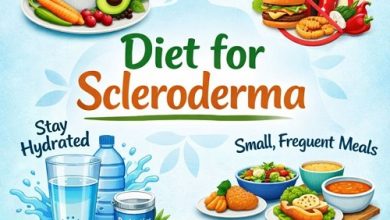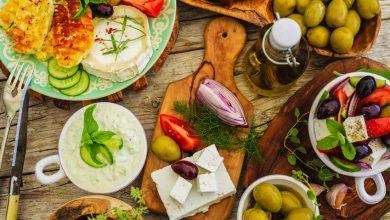Top 4 Breast Cancer Diet Myths You Need to Stop Believing Now

When it comes to breast cancer, few topics stir up as much confusion and misinformation as diet. Social media, blogs, and even well-meaning friends often promote certain foods as “miracle cures” or warn against others as “cancer-causing.” But the truth is, the science behind diet and breast cancer is complex — and many of these popular claims are simply myths.
If you or someone you love has been diagnosed with breast cancer, understanding what’s fact and what’s fiction can make a world of difference. In this article, we’ll debunk the top four breast cancer diet myths that experts say you need to stop believing right now — and share what the science really says about eating for breast health.
Myth #1: Sugar Feeds Breast Cancer — So You Must Avoid It Completely
The myth:
You’ve probably heard this one before: “Sugar feeds cancer.” The idea is that consuming sugar somehow makes cancer cells grow faster because cancer cells use glucose (a type of sugar) for energy. This has led many patients to cut out all sources of sugar — even fruit — in hopes of starving cancer cells.
The truth:
This claim is oversimplified and scientifically inaccurate. It’s true that cancer cells use glucose for energy, but so do every other cell in your body — including healthy ones like your brain, muscles, and heart. Eliminating all sugar would deprive your entire body of the fuel it needs, not just the cancer cells.
What’s more, there’s no evidence that cutting out sugar slows cancer growth or improves survival rates. According to the American Cancer Society (ACS), there’s no direct link between sugar consumption and cancer progression.
That said, high-sugar diets (especially those packed with refined sugars and processed foods) can contribute to obesity, insulin resistance, and inflammation, all of which have been linked to a higher risk of developing breast cancer and poorer outcomes after diagnosis.
What you should do instead:
You don’t have to quit sugar altogether — but you should be smart about it.
- Limit added sugars from sodas, candies, pastries, and processed foods.
- Choose whole fruits over sugary snacks; the fiber in fruit helps regulate blood sugar levels.
- Focus on balance — pair carbohydrates with protein or healthy fats to prevent blood sugar spikes.
Remember, moderation is key. The goal isn’t to starve cancer cells — it’s to nourish your whole body so it can stay strong during and after treatment.
Myth #2: Soy Causes Breast Cancer Because It Contains Estrogen-Like Compounds
The myth:
Soy has long been misunderstood. Many people believe that soy products — like tofu, soy milk, and edamame — can raise the risk of breast cancer because they contain phytoestrogens, plant-based compounds that mimic the hormone estrogen. Since certain breast cancers are estrogen receptor-positive (ER+), the fear is that eating soy could stimulate tumor growth.
The truth:
This myth is one of the most persistent — but it’s not supported by scientific evidence.
While phytoestrogens (specifically isoflavones) can weakly mimic estrogen in the body, they don’t behave exactly like human estrogen. In fact, in some cases, they can even block estrogen’s effects on cells, potentially offering a protective benefit.
Large-scale studies, especially in Asian populations where soy consumption is high, have shown that women who regularly eat soy actually have a lower risk of developing breast cancer and improved survival rates after diagnosis.
For example, research published in the Journal of the American Medical Association (JAMA) found that breast cancer survivors who ate the most soy had a 29% lower risk of death and a 32% lower risk of recurrence compared to those who ate the least.
What you should do instead:
Moderate soy intake — such as 1–2 servings per day (a cup of soy milk or half a cup of tofu) — is considered safe and may even be beneficial. Stick to whole soy foods like:
- Edamame (young soybeans)
- Tofu
- Tempeh
- Soy milk
Avoid heavily processed soy supplements or protein powders unless advised by your doctor. The bottom line: soy is not your enemy — it may be one of your best plant-based allies.
Myth #3: A Vegan or Plant-Based Diet Cures Breast Cancer
The myth:
With the growing popularity of plant-based diets, many people claim that going vegan can cure breast cancer or prevent it from coming back. Some influencers and wellness advocates even promote “alkaline” or “raw vegan” diets as cancer cures.
The truth:
There’s no scientific evidence that any specific diet — vegan, alkaline, or otherwise — can cure breast cancer. Diet alone cannot replace conventional treatments like surgery, chemotherapy, radiation, or targeted therapy.
However, a plant-forward diet rich in fruits, vegetables, whole grains, nuts, and legumes has been shown to support overall health and may reduce recurrence risk when combined with medical treatment.
According to the World Cancer Research Fund (WCRF) and the American Institute for Cancer Research (AICR), a diet emphasizing plant foods can help maintain a healthy weight, reduce inflammation, and provide antioxidants that protect cells from damage.
Still, completely eliminating animal products can lead to nutrient deficiencies — particularly vitamin B12, iron, zinc, calcium, and omega-3 fatty acids — which are crucial during cancer treatment and recovery.
What you should do instead:
- Eat mostly plants, but include lean animal proteins like fish, eggs, or poultry if you prefer.
- Focus on variety: Aim for colorful produce — berries, leafy greens, cruciferous veggies (like broccoli and cauliflower), and whole grains.
- Limit red and processed meats, which are linked to higher cancer risk.
- If you’re vegan, consider supplementing with B12 and omega-3s to fill nutritional gaps.
The takeaway: a balanced, nutrient-dense diet supports healing — but no diet, no matter how “clean,” can cure cancer on its own.
Myth #4: You Should Avoid All Fats If You Have Breast Cancer
The myth:
Many people still believe that all fats are bad, especially when dealing with a serious illness like breast cancer. The fear is that eating fat could lead to weight gain or promote cancer growth.
The truth:
Not all fats are created equal — and your body needs healthy fats, especially during cancer treatment. Fats help absorb fat-soluble vitamins (A, D, E, and K), reduce inflammation, support brain function, and even improve mood and energy levels.
The key is to choose the right types of fats. Research shows that unsaturated fats, especially omega-3 fatty acids, may have protective effects against breast cancer progression.
A study published in JAMA Oncology found that women with higher blood levels of omega-3s had a 20–30% lower risk of breast cancer recurrence. Conversely, diets high in saturated fats (found in fried foods, butter, and processed meats) have been associated with worse outcomes.
What you should do instead:
Focus on heart-healthy fats from:
- Avocados
- Nuts and seeds (especially walnuts, flaxseed, and chia)
- Olive oil and other plant-based oils
- Fatty fish (like salmon, sardines, and mackerel)
Limit or avoid trans fats and heavily processed fried foods. Rather than eliminating fat, embrace healthy sources that nourish your body and support your immune system.
What Science Says About Diet and Breast Cancer
While no food can guarantee prevention or cure, diet plays an important role in risk reduction, recovery, and long-term health. Here’s what experts agree on:
- Maintain a healthy weight. Obesity after menopause increases estrogen production and inflammation, raising breast cancer risk.
- Eat a rainbow of plant foods. The phytochemicals and antioxidants in fruits and vegetables help protect DNA and reduce inflammation.
- Limit alcohol. Even small amounts of alcohol can raise estrogen levels and increase breast cancer risk. Experts recommend no more than one drink per day, or none at all.
- Choose whole grains over refined carbs. Whole grains help regulate blood sugar and insulin, both linked to cancer risk.
- Stay hydrated. Adequate water supports detoxification and overall health during treatment.
How to Build a Breast-Healthy Plate
A simple, sustainable approach to nutrition is the “Breast Cancer-Friendly Plate” method:
- ½ plate: Colorful fruits and vegetables
- ¼ plate: Lean protein (fish, tofu, beans, or chicken)
- ¼ plate: Whole grains (brown rice, quinoa, or oats)
- Add healthy fats: Olive oil, nuts, or avocado
- Hydrate smartly: Choose water, green tea, or herbal teas instead of sugary drinks
This approach encourages balance and variety — without strict restrictions or fad diets.
The Bottom Line: Knowledge Is Power
Breast cancer can be overwhelming, and it’s understandable to want control over your health through diet. But believing in food myths can do more harm than good — leading to unnecessary fear, guilt, or nutritional deficiencies.
Here’s the truth:
- Sugar doesn’t directly feed cancer.
- Soy doesn’t cause breast cancer — it may help protect against it.
- A vegan diet isn’t a cure, but plants are powerful allies.
- Healthy fats are essential — not forbidden.
Instead of chasing miracle diets, focus on evidence-based nutrition: eat whole foods, stay active, maintain a healthy weight, and work closely with your healthcare team or a registered dietitian specializing in oncology.
Your diet should support your body, not punish it. By letting go of these common myths, you can make smarter, science-backed choices that promote healing, resilience, and long-term wellness.
Final Thoughts
Breast cancer nutrition is not about restriction — it’s about empowerment. The right foods can help you feel stronger, recover better, and live longer, but only when you understand the facts. So the next time you hear someone claim that “sugar feeds cancer” or that “soy is dangerous,” you’ll know the truth: science says otherwise.
Eat well, stay informed, and nourish yourself with confidence — because your health journey deserves nothing less than the truth.




